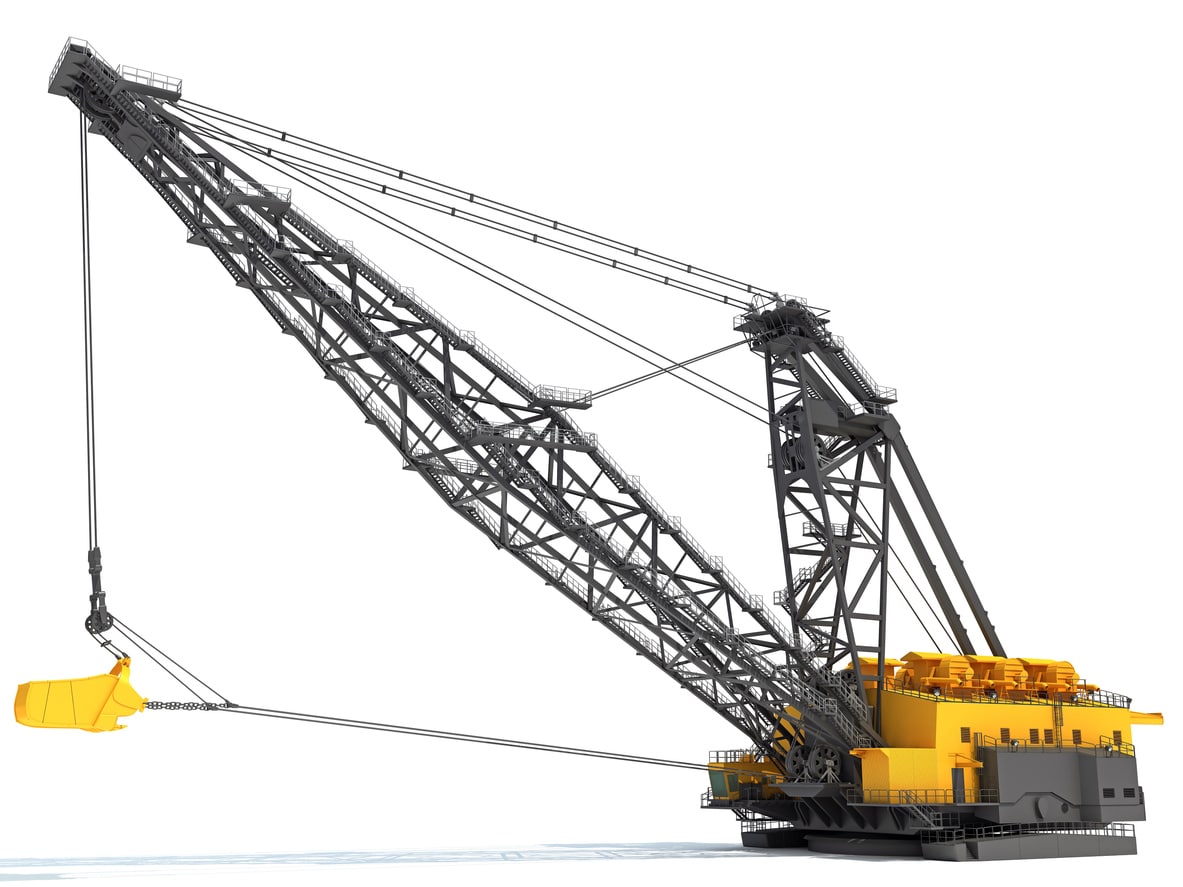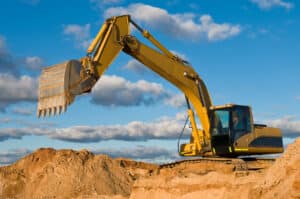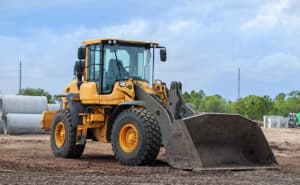
If you’re looking to upgrade your construction equipment this year, one of the biggest decisions you’ll need to make involves whether to purchase new or used equipment. In some instances, renting your construction equipment may even be the best option for your business. There are several factors impacting this decision, including cost, warranties available, and the benefits and drawbacks of buying new vs. used construction equipment.
In order to make a fully informed decision, you must first understand the cost of the equipment you’re purchasing. The following discussion will provide an overview of the most expensive types of construction equipment you can potentially add to your fleet.
Cranes
Cranes are one of the most expensive pieces of construction equipment available. They range from $50,000 on the low end to $5 million on the high end. The type of crane you need to purchase will be one of the primary determining factors in the price:
- Rough terrain cranes cost between $50,000 and $500,000
- All-terrain cranes cost between $100,000 and $1 million
- Truck cranes cost between $100,000 and $2 million
- Crawler cranes cost between $1 million and $5 million
Keep in mind that cranes also experience high maintenance and repair costs due to the large levels of stress and torque associated with their use. However, regular maintenance is critical to avoid part failures that may result in more expensive repairs down the road.
If purchasing a crane is out of your budget, rentals will cost anywhere from $200 per day for smaller models to $1,000 for larger models.
Excavators
 Excavators also rank among the most expensive pieces of construction equipment, costing between $100,000 and $500,000 for a new machine. Smaller (10-15 ton) models typically run between $100,000 and $150,000, while full-sized excavators typically cost between $200,000 and $500,000.
Excavators also rank among the most expensive pieces of construction equipment, costing between $100,000 and $500,000 for a new machine. Smaller (10-15 ton) models typically run between $100,000 and $150,000, while full-sized excavators typically cost between $200,000 and $500,000.
Maintenance costs must also be a consideration when purchasing excavators, as these machines undergo heavy usage and experience high levels of stress. In addition, the complexity of these machines means that repairs are often more costly than other types of construction equipment. It’s common for maintenance and repair costs to range from $4,000 to $10,000 per year depending on the size of excavator.
If you prefer to rent an excavator, it will cost about $500 per day for smaller models and $1,300 or more per day for large ones.
Motor Graders
Motor graders are highly durable and typically last for 10-15 years. This durability is important since motor graders are costly. These machines range between $200,000 for smaller 130hp graders and $500,000 for larger 250hp machines.
The good news is that maintenance costs for motor graders are much lower than for cranes and excavators since they are used for low-impact tasks.
Rental costs for motor graders are relatively high since these machines are highly specialized and have more limited applications than other types of construction equipment. You can expect to pay $1,000 to $1,500 per day when renting a motor grader.
Concrete Mixing Trucks
Due to the widespread use of concrete in construction projects, concrete mixing trucks are typically in high demand. The cost of these machines ranges from $100,000 to $150,000.
Concrete mixing trucks are extremely heavy, weighing as much as 40,000 pounds with a full load of concrete. Therefore, proper maintenance is critical to ensure your machine can handle the pressure associated with such heavy loads. Regular inspections are essential to maintain optimal performance. For this reason, maintenance costs are often high.
Rental costs for concrete mixing trucks range between $500 and $800 per day, which is on the lower side compared to some of the other types of construction equipment on this list.
Wheel Loaders
 Wheel loaders are extremely common at construction sites and come in a wide range of sizes. This variety results in a broad range of costs for wheel loaders:
Wheel loaders are extremely common at construction sites and come in a wide range of sizes. This variety results in a broad range of costs for wheel loaders:
- Small (110hp) models cost between $40,000 and $130,000
- Mid-size (180hp) models cost between $120,000 and $180,000
- Large (350hp) models cost between $150,000 and $500,000
- The largest wheel loaders (500hp) can cost as much as $1 million
Annual maintenance costs vary based on the size of your wheel loader and range from $4,000 for an average-sized machine to $10,000 for large name-brand wheel loaders.
Rental costs for wheel loaders run between $400 and $1,000 per day, depending on the size of the machine.
Buying vs. Renting Large Construction Equipment
In general, the larger and more powerful the construction equipment, the more expensive it will be to buy, operate and maintain the machine. Other factors impacting the cost of this equipment include:
- Brand
- Technology
- Wear and tear (for used equipment)
Renting construction equipment can be a more cost-effective solution if you’re primarily using these machines for short-term projects. However, there are also many situations where it makes sense to buy your construction equipment. This may be the right option for long-term projects with predictable machinery requirements. It’s an investment in an asset that, when properly maintained, can be used for many projects over its lifetime, delivering excellent value to your company. If you’re looking to build your equipment fleets for the long haul, buying often makes financial sense.
Power Screening Can Help
If you need to purchase new construction equipment for your fleet, Power Screening can help. We’ve been the leading heavy equipment dealer in the Rocky Mountain region since 1984. We offer a robust selection of new and used equipment, including equipment from the leading manufacturers for many types of construction equipment. In addition, we carry genuine OEM parts, and our technicians offer both shop and field support to ensure your equipment continues to run properly with as little downtime as possible.
Contact us today to learn more about our new and used heavy equipment. Power Screening serves customers in Colorado, Utah, New Mexico, Nebraska, Idaho, Wyoming and Southwest Kansas.
